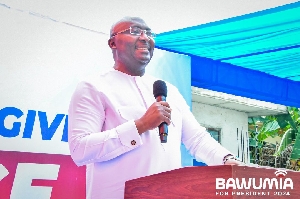Opinions of Sunday, 15 January 2012
Columnist: Abdallah, Tijani Kassim
Sycophancy drowns African Governance.
‘’I want people around me who will tell me the truth, who will tell me the truth as they see it, you can not operate and manage effectively if you have people around you who put you on a pedestal and tell you everything you do is right because that in practice can’t be possible” Harry Truman (33rd President of U.S)
Not long ago, I had a congenial conversation with some nationals from other West African countries during our youth summit about the future of African governance, and to my surprise almost all of them have identify one phenomenon which is the word Sycophancy, a big canker that is impeding the growth of our governance in Africa. It appears is not limited to only Ghana but this is what one of the Nigerian nationals have to say ‘’we live in a situation where after the assumption of power, society would deify you, they make you feel you are on top of the world, they expect you to ride certain class of cars regardless of your capacity, move with certain class of ladies, wore certain type of clothing and he goes on and on’’.
According to Cambridge international dictionary ‘’Sycophancy is an attempt to please someone in authority in order to gain personal advantage”. In otherwords, Sycophancy is the process of using flattery to win favor from individual wielding influence. This is also known as supplicating in social psychology. Also, Sycophants are usually pretenders which may also be referred to as strategic self presentation.
It is becoming obvious that most of our leaders particularly government officials, including some of their private counterparts derive joy and satisfaction from flattering and praises, they love and worship titles like the case Euthyphro and Socrates, an ancient characters where Euthyphro deify himself and proclaim to be god while Socrates remains intelligent but very humble. Most often than not, people who criticize are often vilified, they sometimeslooses their job for opposing their superiors ideas.
The daily praises of our failed leaders in the pages of newspapers and the electronic media is a bad example of how sycophancy has drowned our governance. Today in Africa, the swiftest way of gaining advantage is to become a sycophant and praise most of our leaders to high heaven which is inimical to our development. This runs through in all walks of life,from studentleadership,traditional,music,religious, Families,corporate institutions and many others.
I am sure if Nkrumah,Patrice Emery Lumumba, and many other historic leaders have been alive,they could point out how sycophants havemisledthem to make some regrettabledecisions. The question is, have you ever sat down to analyze whether what people say about you is the true reflection of your persona? Oh you look good,oh you are the best man for the presidency,and oh you don’t need to campaign here because you have won,when studies have shown that, that is where you actually have to go.
However,if leaders are surrounded by sycophants it sometimes misleads them to put square pegs in round holes. Therefore sycophancy leads to favoritism,nepotism and impunity.
How do we resolve this amnesia of sycophancy?
First, I think as Africans,it is important we took serious responsibility to search far and near, to look for people of character,better prepared than those presented as sycophants and nominate them for election into leadership position in their respective countries.
Second,we should put competency and patriotism ahead of sycophancy.Again, it is important to recognize that each and every individual has his /her strength in termsof abilities and capacities, so in addressing issues of national interest, the best and competent persons are engaged regardless of their political orientation.
Third, I think is important to emulate Enoch Powell’sexample. ABritish politician and a soldier who once said that,‘’to see and not to speak will be the great betrayal’’. clearly, it means no leader should see constructive criticism as either confrontational or destructive, for they are there to strengthen us and point out those hidden areas which the human eyes can easily over look.
Inconclusion, if we brighten the corner we find ourselves, eventually the whole continent will be brighter.
May God Bless Us All.
Author: Tijani KassimAbdallah/ Ibn_abass2g7@yahoo.com












